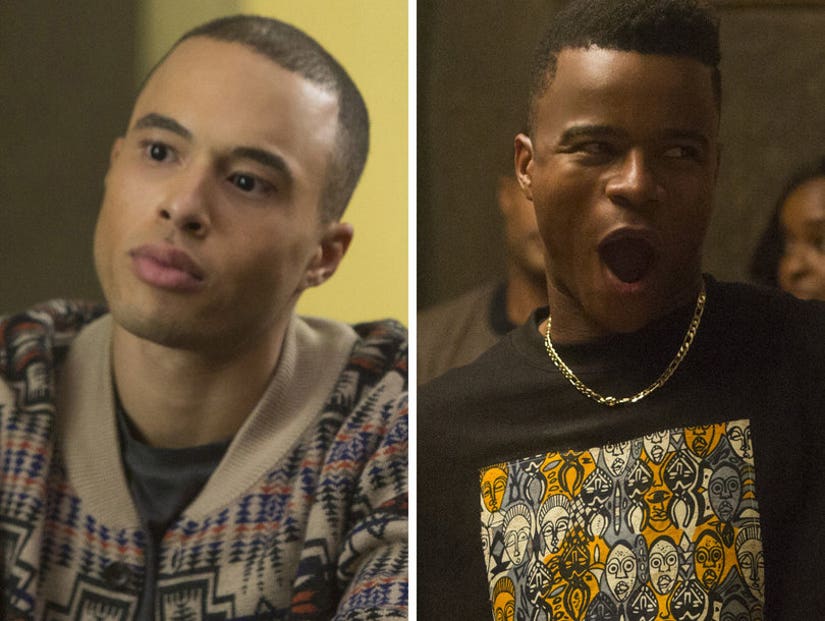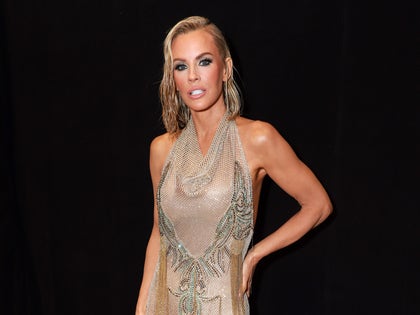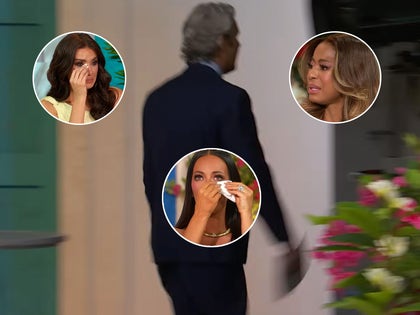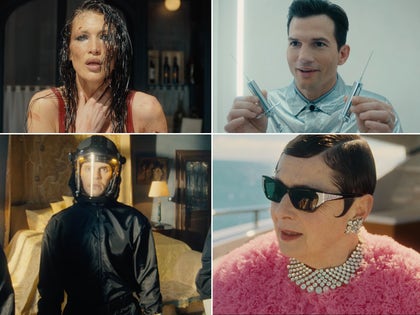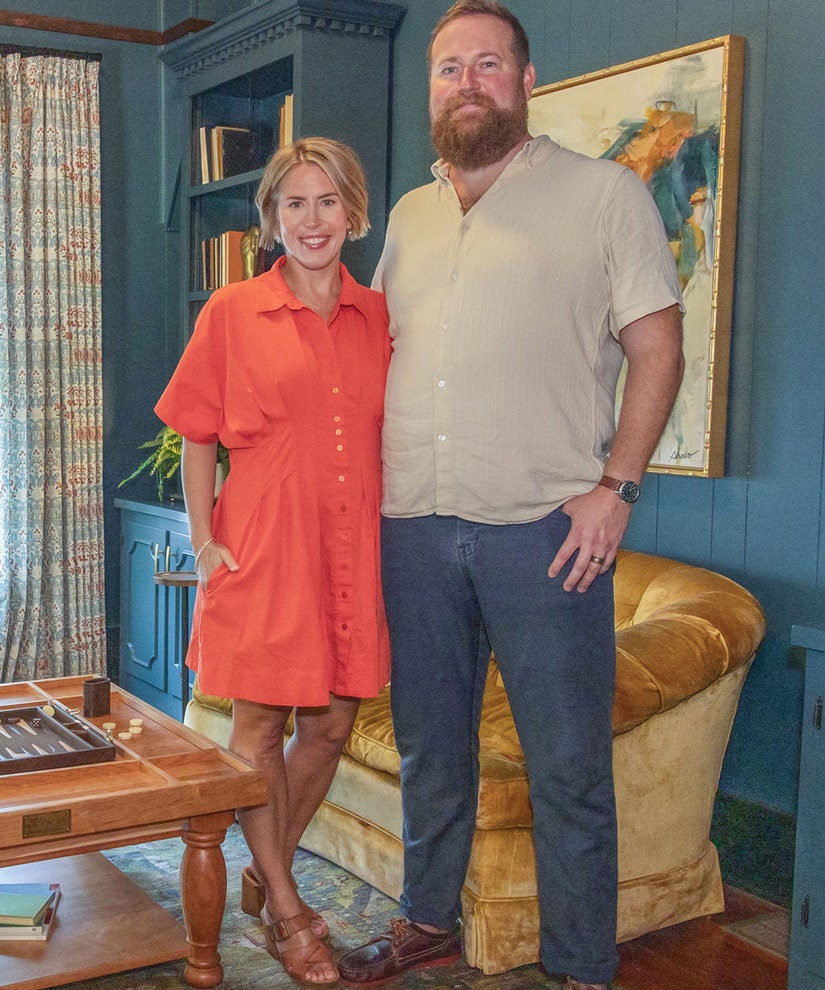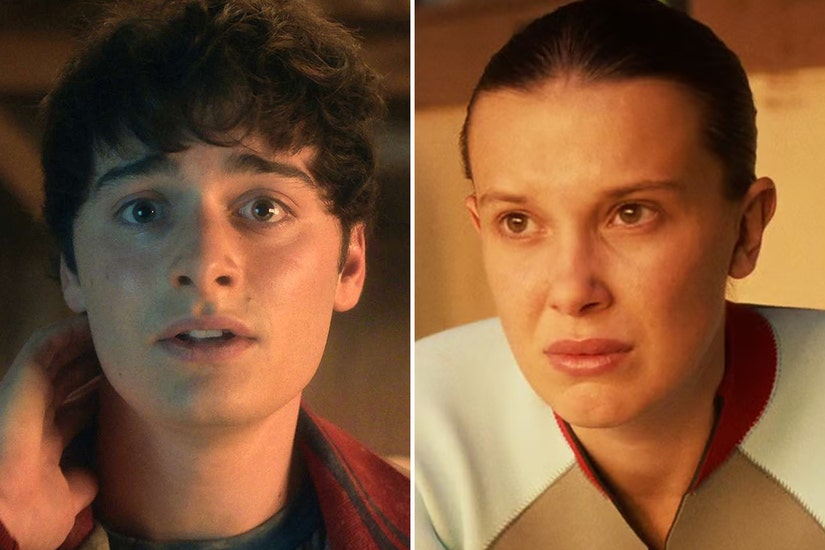"Dear White People" has been the topic of heated racial discussion in comment sections across the web, even being with accusations of presenting an "anti-white" message, but stars Marque Richardson and Jemar Michael think the new Netflix show that starts streaming Friday is simply misunderstood.
In a TooFab interview, tackling subjects like being "woke" and what white people can learn from the show, the actors called the backlash "funny" and "unfortunate" -- yet recognize it's exactly the type of buzz the show needs to become a hit.
"Someone went so far as to say it was white genocide. To me, that's a reach and a half," Michael said.
Richardson added, "The response is just funny. It's unfortunate, but it just goes to show how important the show is right now. I welcome the 'haters' because it's just building more buzz about the show."
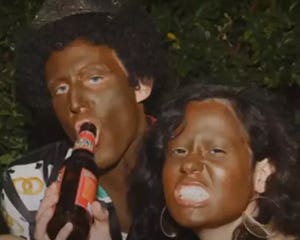
Why 'Dear White People' Has Netflix Users Deleting Their Accounts
View StoryThe 10-episode series, based on the 2014 movie of the same name, follows a group of black ivy league students at Winchester University. The advocate group is complied of smaller groups of students who, though wildly different, all have a similar goal: exposing the unfair treatment of black students on campus.
It's easy to call the 30-minute show a comedy, but it's presented in a way that also inflicts a roller coaster of emotion. The humor adds a light touch to an otherwise heavy topic, and it's presented like a book you cannot put down. Engaging and uplifting, smart, and perfectly cast, "Dear White People" is a binge-worthy show that will leave you begging for more.
Read the interview below to find out what this show is here to do, why white people should be paying attention to it instead of complaining, and what it truly means to be "woke."
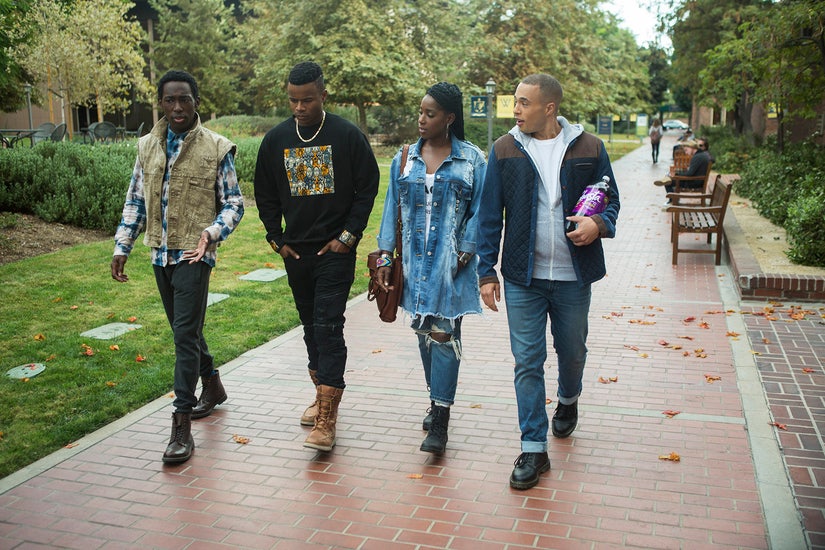 Netflix
Netflix
What does it mean to be "woke"
JM: Being woke to me is just being aware of the things that are happening in the community around you. Not putting things aside that don't effect you, just being aware of the issues that not only you're facing, but that the community that you're in is facing as well.
MR: Woke to me just means conscious, aware of what's happening around. Finding out what's really going on around you and in your community.
Do you think it's just trendy to be "woke?" Is it just a thing because it was made to be a thing?
JM: I think because of social media, it's become a thing. But for me personally, as I get older, it makes me more aware of the news. I see my priorities shifting from what I used to follow on television to now - I'm following the news and the election, where I've never done that before. I'm learning about things that are actually effecting my community around me and the people around me. Especially in this Trump era, it's hard not to want to know what's happening."
MR: I think it really depends on the person. I know a lot of people who actually feed off of being in the streets as opposed to being in the streets to actually do something. I think it just really depends on that individual person. I also do think it's important to be 'woke' even though I don't use the term, I think it's very important to be conscious about the reality of what's happening, especially today.
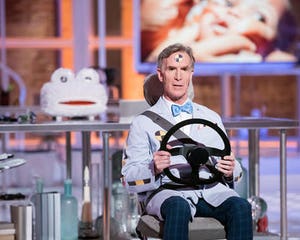 Netflix
Netflix
Bill Nye's New Netflix Show Is A Little Awkward, But Very Necessary
View StoryWhat does "Dear White People" set out to do? What's the show's goal?
JM: I think one of the goals was to spark a conversation. Just have people aware that yes, we can have fun with all of these things and create a series and a create a movie, but these are thing that are happening to everyday people. It's not just a joke. That's one of the beautiful things about the show, we are able to make you laugh and make you cry. One minute there's a race joke here, then there's something else that someone said that's got you thinking like, "wait, is that okay?"
MR: I think the shows main goal is to start conversation that people can have at home, at work about sexuality, race, gender - all these different identity topics that can be used to progress as people.
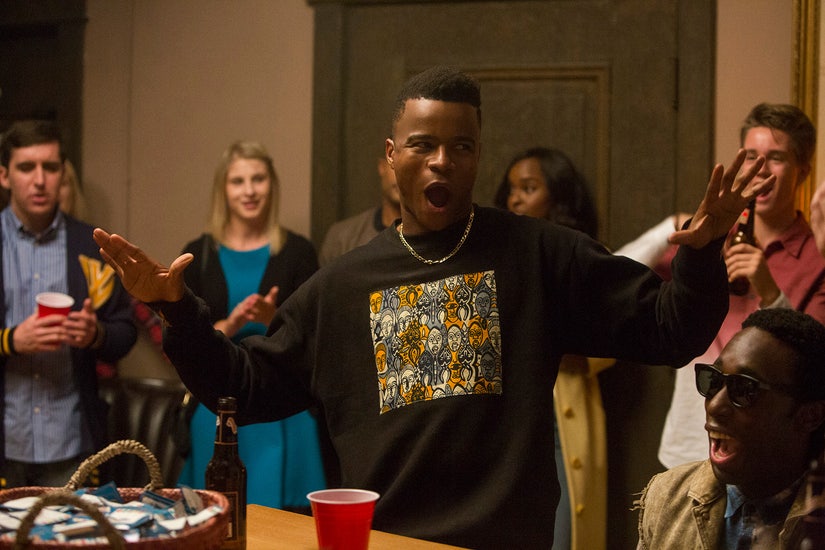 Netflix
Netflix
This show is laugh out loud funny, why is it important to add humor to such a heavy topic like race and social injustice?
JM: I think with my character it gives everyone a sense of relief. I feel that with Al, because he is light skin, he feels like he has to project a little more just to make sure that he's meeting the status quo of 'blackness.' The reason he is so funny and so out there is his way to make friends. I feel like he struggles with the light skin/dark skin debate. I know for me, I thought, 'am I not black enough for this role?' I don't even know what the stereotype (of being considered black) would be because half of my family is from the hood, so it's nothing new to me. That debate is something I wanted to bring to the character.
RM: A lot of people forget that the show is actually really, really funny. It has it's moments of laughter and then it'll make you cry the next. I think with satire specifically in "Dear White People," the content is so important that it's easier with comedy to feed it to the people. That will melt your guard, with the comedy, and then all of a sudden you're learning something you didn't know. Hopefully, everyone can take that and become more emphatic towards people that are different than them, in these conversations.
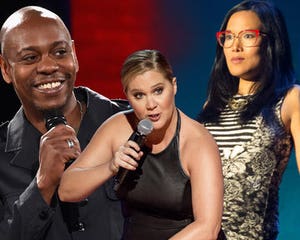 Getty Images
Getty Images
9 Must-See Netflix Comedy Specials: The Good, The Bad and The Hilarious
View StoryHow have people reacted towards the title? You really have to watch it to know that it's not at all about white people. What is some of the reaction you've seen?
JM: Oh, it's already been a thing since the movie. When our teaser trailer came out, someone went so far as to say it was white genocide. To me, that's a reach and a half. The thing that I love about it, I feel that it called out white people to say, 'hey, these are things that happen, don't ignore them. It's okay to laugh at this stuff.' It's one of those things that if you weren't aware of it before, we hope to make you more aware with the show.
MR: It's so funny, because there's nothing anti-white about the title, about the teaser, about the trailer. There's never been anything anti-white about the show, at all. People will actually see that once they watch all the episodes. The response is just funny. It's unfortunate, but it just goes to show how important the show is right now. I welcome the 'haters' because it's just building more buzz about the show.
This series is perfectly cast. Do you think getting into character came easy because this is a topic that is very real, especially for a cast of black actors?
JM: Absolutely. Each one of us has lived basically the lives of our characters. I think that translates to the screen so well. We all have become so close. Some of us did the movie, and came back a second time but even those who are new - it felt like they had been there the entire time. We were so blessed to have such an open minded cast. We all feel safe to try new ideas and really go there, and we feel so strongly about this piece that we want to give it our all, and I think that really shows through.
MR: Reggie has so many layers. I really think he is vulnerable and has been vulnerable, especially with Sam. Is it easier? I mean, I didn't grow up like him. My parents are not black panthers, I didn't grow up militant, and what now. I did a lot of research and combined my education with Malcolm X, Angela Davis, and all these different figures to create that character.
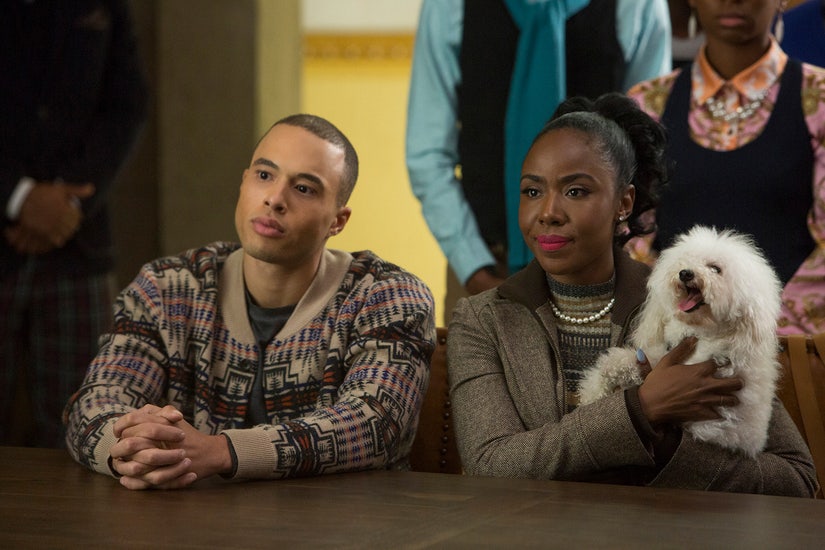 Netflix
Netflix
Any scene in the series you closely relate to?
JM: Well, [I relate to] Lionel. There's a scene where the barbers are talking about him being gay, and that has happened to me. It's interesting where I can relate to certain aspects to each characters. With Sam, her being biracial, and having a white boyfriend, I can relate. It's a great piece to really see where you intersect with so many different types of people.
MR: I've definitely experienced the turmoil of not getting the girl, and being wrapped up in that crazy love thing. And I can relate to a lot of different story lines in "Dear White People" because there are so many.
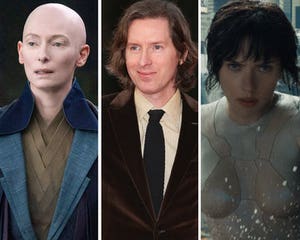 Getty
Getty
ScarJo, Tilda Face More 'Whitewashing' Backlash -- For a Movie About Dogs
View StoryWhat do you think white people can learn from this show?
JM: I want white people to take from this that black people aren't threatening. I feel like that's a common thing in society and it's not going away. It's not like people want to be that way, but I feel like I've noticed things just walking down the street. I'll notice how people react to me versus how they react around someone who's a little darker skin. I want them to take away that we're not threatening. We're just like you, going through similar situations we can all relate to.
What do you think black people can learn?
JM: I think black people can learn that we're not a stereotype. We don't have to stick to that hood, welfare, stereotype that people think that we are. We're not all the same. We don't have to fit this caricature that this world has put on us. We are not this idea of 'black.' There are so many different people in the world that are black, that have black in them, and I feel like we all need to be supportive of that. Black people need to be supportive of people in their communities because there's already back-and-fourth when we all really just need to come together."
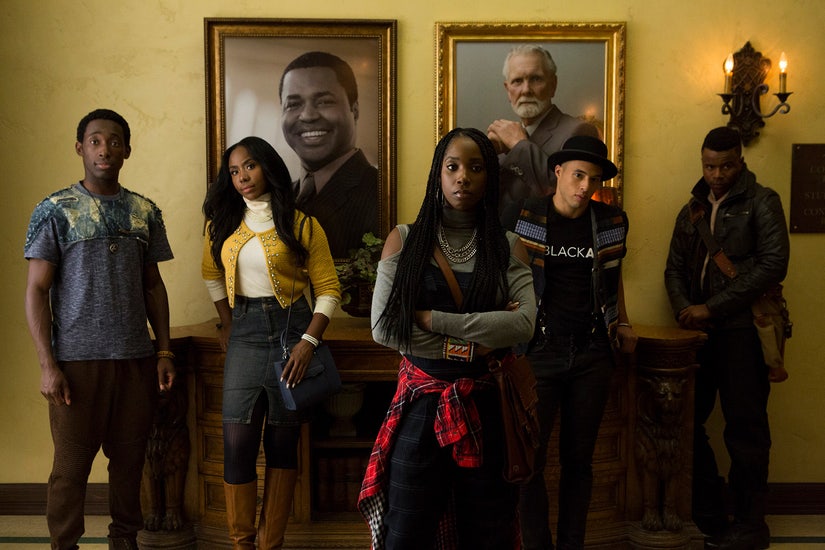 Netflix
Netflix
Who is "Dear White People" made for? The black kids? The white kids? Everyone?
JM: I think it's made for everybody. I don't think it's made for just white people or just black people. It's coming from a black creator, so it does have a stamp for the culture but at the same time, it's not just made for us. I've noticed that one of things that Justin [Simien] has said too is that he didn't just want to make a 'black show.' He wanted to make something that he's never seen on television before that works for everybody but also gets his mind working too. That's something that I can really appreciate. [Justin] wants to understand minds of other cultures and other races, which I think is beautiful.
MR: I think white people, black people, yellow people, brown people, every person can learn a bunch of different things. At the root of it, "Dear White People" is identity vs. self, and that is a universal story. With all the layers in the show, hopefully everyone can be more empathetic to people who are different than them. I think that's a lot of the turmoil right now, that people are afraid of people who are different than them. T Hey fear something that they just don't understand. I think through this show, and through these conversations, people will be more emphatic.

